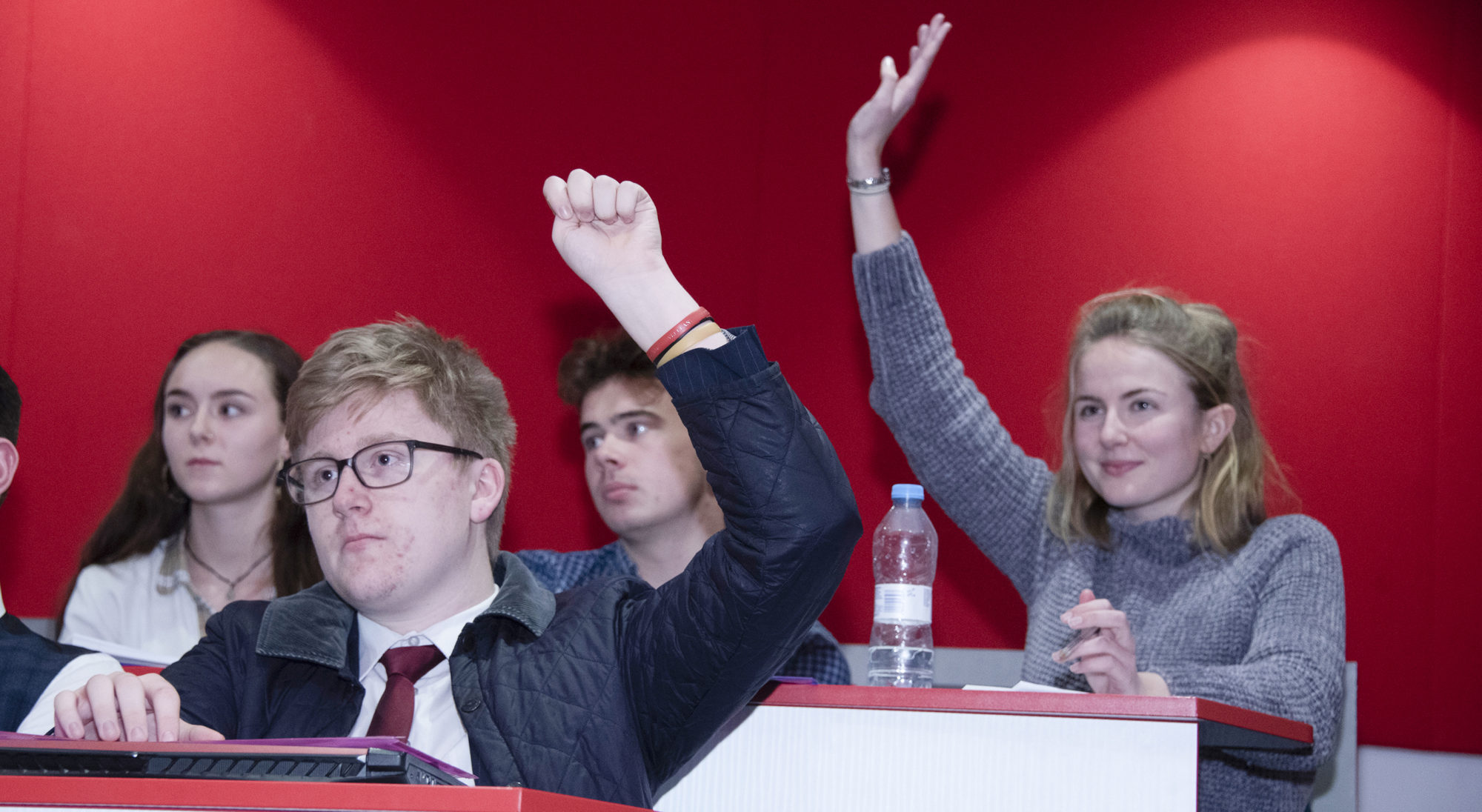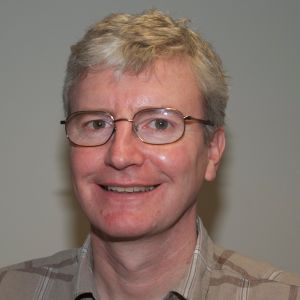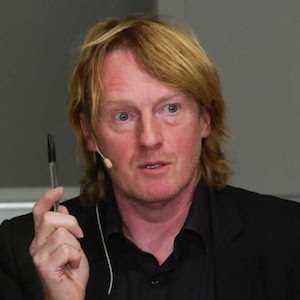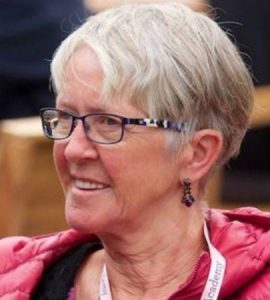Emeritus Professor of History
University of Sunderland
Kevin’s research interests include assisted suicide and assisted dying, the intellectual history of race in the twentieth century United States, social movements in American history, and morality and the relationship of the individual to the state. He is currently working on a book about the 1924 Immigration Act, His books include Assisted Suicide: The Liberal Humanist Case Against Legalization (2013, 2015), The Second Amendment and Gun Control (2017, ed., with Joe Street) and Richard Nixon and the Rise of Affirmative Action (2006). Kevin sings in Durham Choral Society.
national coordinator, Debating Matters
Mo is the national coordinator for Debating Matters. She is also a programme coordinator for the Academy of Ideas and co-convenor of the Buxton Battle of Ideas Festival. Mo is an experienced events manager, having worked both nationally and internationally on a range of festivals and cultural programmes, most notably as Artistic Director for national Holocaust Memorial Day at London’s Guildhall in 2010 and as programme manager for the Swallows Project, a cultural partnership between the North East of England and the Eastern Cape of South Africa.
Mo read PPE at the University of Oxford and completed her doctoral research at the University of Northumbria, examining the application of arts and culture policy in areas of economic deprivation. She is a lecturer, public speaker and a commentator on TV and radio where she reviews the newspapers for Sky News, Times Radio and BBC Five Live as well as being a panel guest on Neil Oliver Live & Tonight Live with Mark Dolan for GB News.
Mo is passionate about debate and recently wrote Why Debating Matters for the Academy of Ideas’ series, Letters on Liberty.
Follow Mo on Twitter at @M0L0VATT
director general and master of the armouries
Nat Edwards joined the Royal Armouries in October 2022 as Director General and Master of the Armouries. He was previously Chief Executive Officer at Thackray Museum of Medicine in Leeds for 4 years, where he oversaw a £4million refurbishment and guided the museum through the difficult COVID-19 period. As a museum curator and community activist, Nat has worked in museums, galleries and archives for 30 years – developing exhibitions, education and community-based projects as well as major capital projects. Nat is the author of Caledonia’s Last Stand: In search of the lost Scots of Darien, in which he tries to find something to smile about in the history of Scotland’s disastrous Darien Scheme.
senior lecturer
Northumbria University
Sasha has 30 years experience in the health and social care sector, much of which was spent working in the NHS, working with children with chronic illnesses and latterly in a public health role. She currently teaches health professionals and social workers at Northumbria University. Her research interests exploring the factors that affect students’ success in higher education, mental health in children and young people, digital technology and its impact on the health of children, and finally politics and the student nurse. Outside of work she is an Ironman, which she says sounds good, but just means she is crazy enough to completed a mammoth triathlon. She is a school governor at a local secondary school, has two teenage children and loves travelling.
programme director, international programmes, University of Oxford
The backbone of Alison’s career is journalism, initially specialising in medicine and more recently broadening into biography, features and arts including writing a weekly column for the Oxford Mail and broadcasting on BBC Radio Oxford. Since 2012 she has also directed programmes for the University of Oxford’s Department of Continuing Education’s international programmes in leadership, public policy, higher education and economic management.
chief executive
New Writing North
Claire is the founding chief executive of the literary charity New Writing North where she oversees flagship projects such as the David Cohen Literature Award, Gordon Burn Prize, the Northern Writers’ Awards and Durham Book Festival and award-winning work with young people. She works with partners from across the creative industries and charity and public sectors including Penguin Random House, Hachette, Channel 4 and the BBC to develop talent in the North. Claire is a trustee of the reading charity BookTrust, the Community Foundation Tyne and Wear and a board member of the North East Cultural Partnership.
engagement and programming manager, Locomotion, Science Museums Group
Eileen has been working in the arts and culture sector for 20 years. She specialises in museum learning, outreach, and community cohesion. Her varied roles have included local museums and heritage engagement through to strategic regional and national programmes, supporting cross-sector collaborations, partnerships, and skills development. She currently works for the national Science Museums Group. Eileen has degrees in Industrial Archaeology with History, Museums Studies, and Leadership and Management. She is an associate and mentor for the Museums Association. As a historian at heart, Eileen loves debating and believes it is one of the best ways to develop critical thinking skills; empowering freedom of speech and encouraging us to question our biases and the world around us.
Eileen tweets as @eileenperrie
head, Oxford Text Archive, Bodleian Libraries, University of Oxford
Martin Wynne runs the Oxford Text Archive, a repository of digital data which, for more than forty years, has made available digital data for research in languages and literature, and has worked to preserve and share important historical texts. He is a former director of the European research infrastructure CLARIN, which supports the use of digital language data and tools in research across the humanities and social sciences. Martin has a background in research and teaching in languages and linguistics, has worked at a number of universities and research institutions in the UK and in Europe, speaks a number of European languages, and continues to travel widely, despite now being happily settled in Oxford. Martin looks forward to a future of improved cooperation and collaboration with European colleagues after Brexit.
philosopher, author
Dr Stephen Law is a humanist and author of the Oxford University Press Very Short Introduction to Humanism. Stephen defends a liberal attitude to moral and religious education in his book The War For Children’s Minds. He is also the author of several popular philosophy books including The Philosophy Gym: 25 short adventures in philosophy, and the young person’s The Complete Philosophy Files.
Stephen has no A-levels, and worked as a postman in Cambridge for four years before discovering philosophy and entering university as a mature student age 24. He was junior research fellow at The Queen’s College Oxford, reader and head of department at Heythrop College University of London, and is currently an honorary research fellow at Roehampton.
retired nurse; writer
Bríd is a retired nurse, midwife, health visitor and health service manager and worked predominantly in the NHS in London. She’s also worked as a fundraiser for a development aid charity. Since retiring, she has engaged critically with the shifting terms of debate around female genital mutilation/cutting via her blog at Shifting Sands. She is also using her retirement to indulge her interest in travel and walking long-distance paths. The next one she plans to tackle is in Portugal.











